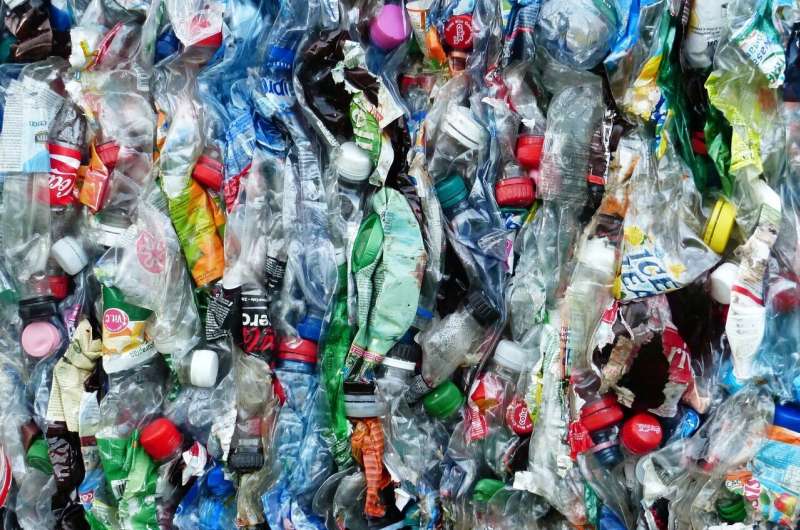Credit: CC0 Public Domain
The coronavirus pandemic has complicated, well, everything, including everyday efforts to reduce, reuse and recycle.
With disposable masks cluttering landfills and waterways, stores banning reusable bags and restaurants serving food only in takeout containers, it can be easy to get discouraged about the waste we're creating.
In a recent UCLA Connections webinar, UCLA Deputy Chief Sustainability Officer Bonny Bentzin offered much-needed encouragement for all of those who, thanks to the pandemic, see the word "reusable" and think "infected."
Bentzin also shared tips for how we can continue protecting the environment, even during the COVID-19 era. Key takeaways:
- Decline unneeded extras. When ordering takeout meals, specify that you don't want napkins and utensils. If a server offers a straw, decline it before you touch it. When grocery shopping, ask to have your items placed directly in the cart at checkout and bag them yourself (in a reusable bag) after you exit the store.
- Reward restaurants that use sustainable products. Restaurants have it tough right now, but some are investing in compostable packaging, or at least recyclables, instead of polystyrene foam. When you can, put your money where your mouth is and support those restaurants. And if your favorite eateries aren't using sustainable materials, let them know it's important to you.
- Stick to reusable when you safely can. Sharing water coolers with others may not be wise during the pandemic, but using plastic water bottles is still avoidable. Before a car trip, work or a picnic, fill up your own reusable water bottle at home. Take coffee from home in your own mug instead of buying it in a disposable cup. Use reusable bags when you can. And wear (and wash) reusable masks.
- Buy less. Make do without new purchases when you can, or buy secondhand—while maintaining safe physical distance—if needed. Bentzin said arranging contactless trades with neighbors through the Buy Nothing Project has helped her maintain a sense of community.
- Use your consumer power to push for change. If you must buy, vote with your wallet. When ordering from online sellers, set your account preferences to request low-waste packaging. Purchase items made with recycled content. Support businesses and vendors with environmentally friendly practices. And contact businesses that make any of those options difficult to let them know what you want.
Credit: University of California, Los Angeles
Provided by University of California, Los Angeles
























